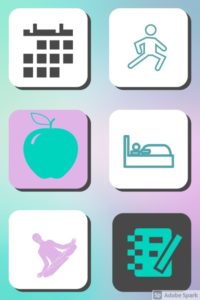Harrell Library Hosts second Healthcare Hackathon
On Sept. 22, the Harrell Health Sciences Library hosted the second Healthcare Hackathon, a collaborative day-long event where teams discussed issues in healthcare around a chosen theme, brainstormed solutions and pitched their ideas for a panel of expert judges.
This year, the library teamed up with members of the Office of Nursing Research and Innovation to help choose the theme. The team discussed how the events of the last two years brought to light the importance of maintaining good wellness practices as a matter of workplace survival and personal necessity. Given this focus, team members chose the theme “promoting wellness practice for health professionals.”
While the judges this year were selected from a variety of disciplines, they all shared an interest in medical innovation and how the pandemic has shaped the experience of health professionals. Nicole Sunderland joined as an organizer of the Nursing Research and Innovation group. She was accompanied on the judging panel by Brad Long, Embedded Health Sciences Librarian for Harrell Health Sciences Library at the Penn State College of Medicine University Park Regional Campus, and Dr. Nuwan Sella Kapu, Medical & Scientific Innovation Project Manager for the College of Medicine’s Center for Medical Innovation.
The event began with a morning kickoff meeting via Zoom, after which the groups broke up into their own individual Zoom rooms to begin discussion and brainstorming for their project ideas. Suggested tools and resource documents were provided to help guide their efforts, and volunteers from the Harrell Library staff checked in on their progress throughout the day to provide feedback.
Despite the relatively short time the participants had to develop their projects, lively discussions evolved around the topic of wellness in general, and the specific culture of wellness within the campus community. Group 1 was a team of four: Angela Rodgers, Stacey Carmo, Terry Brosche and Deb Tregea. The group came up with a set of action goals to achieve improved focus on wellness within their work environment. In their presentation, they stated, “The pandemic is impacting our staff in many ways including burnout, stress, and even leaving the organization. This impacts our ability to provide safe, quality patient care. Our idea, based on the behaviorism theory, will assist in improving our staff experience and patient experience scores. To do this, we need to analyze the ‘right’ data, create a Chief Wellness Officer position/VP that will be purposeful in addressing this issue, and embed this into the work culture so we can offer awards and incentive to drive this change in culture.”

A mock-up shows the winning team’s idea for an app for health professionals to track and schedule their wellness habits.
Responses to the event expressed enthusiasm about meeting and working with colleagues who share an interest in healthcare innovation, and a desire to have more time to develop their ideas. Both teams produced some great work in a short period of time, and all of the event organizers were excited to see their results.
If all of this sounds interesting and you’d like to be the first to hear about organizing for next year’s event, please email edonne@pennstatehealth.psu.edu to be added to the hackathon mailing list.
Read more
If you're having trouble accessing this content, or would like it in another format, please email the Penn State College of Medicine web department.
